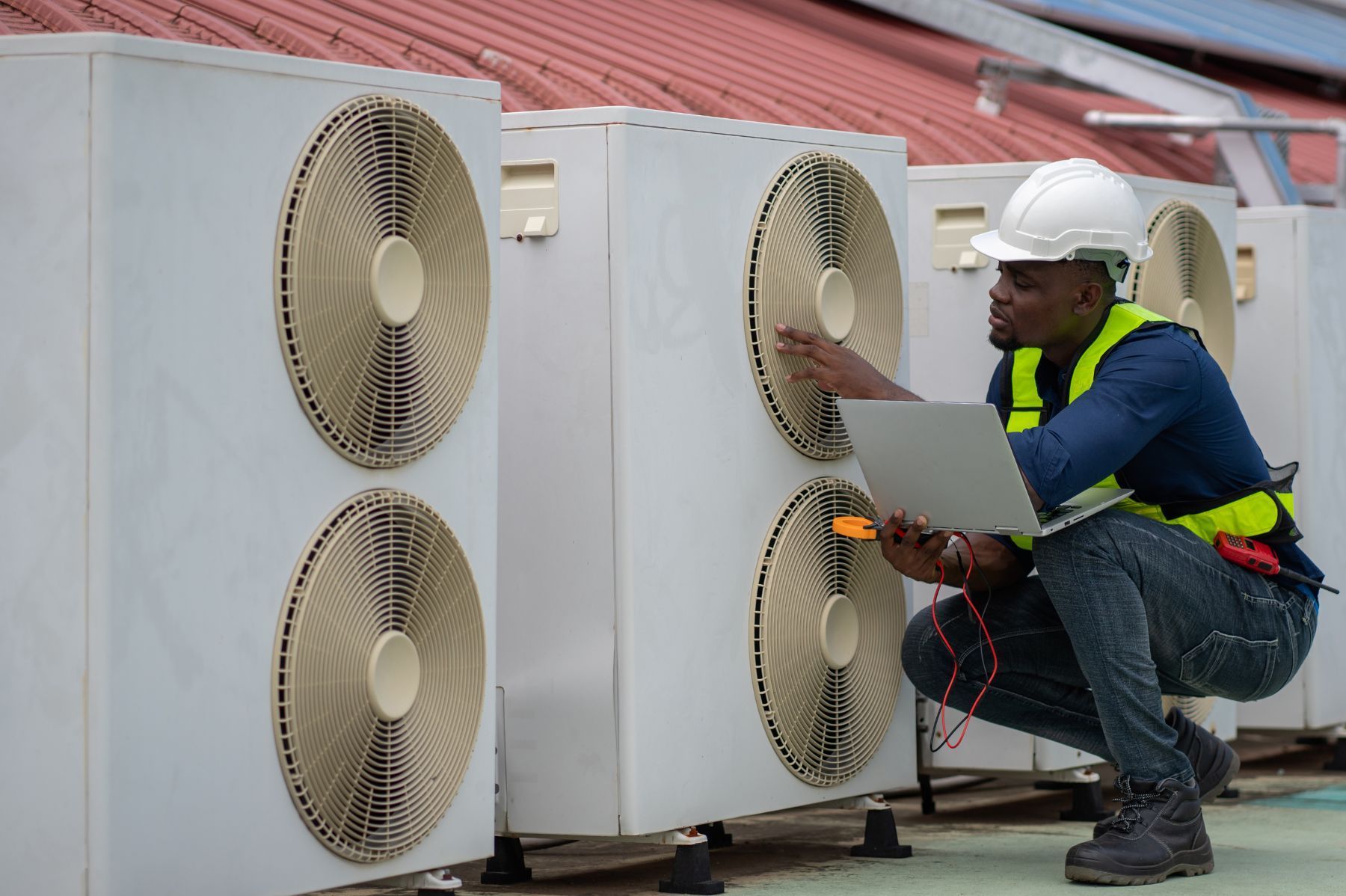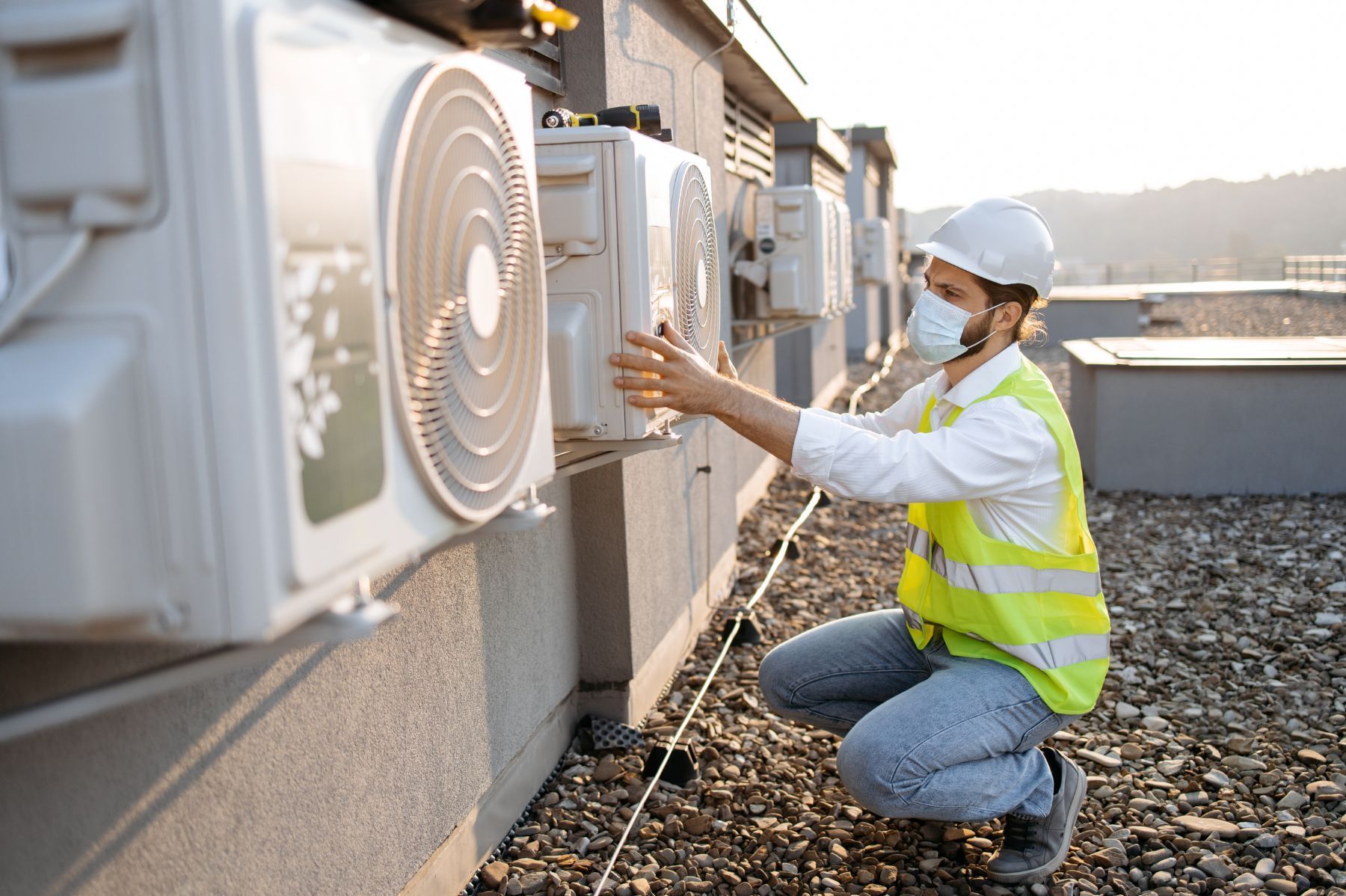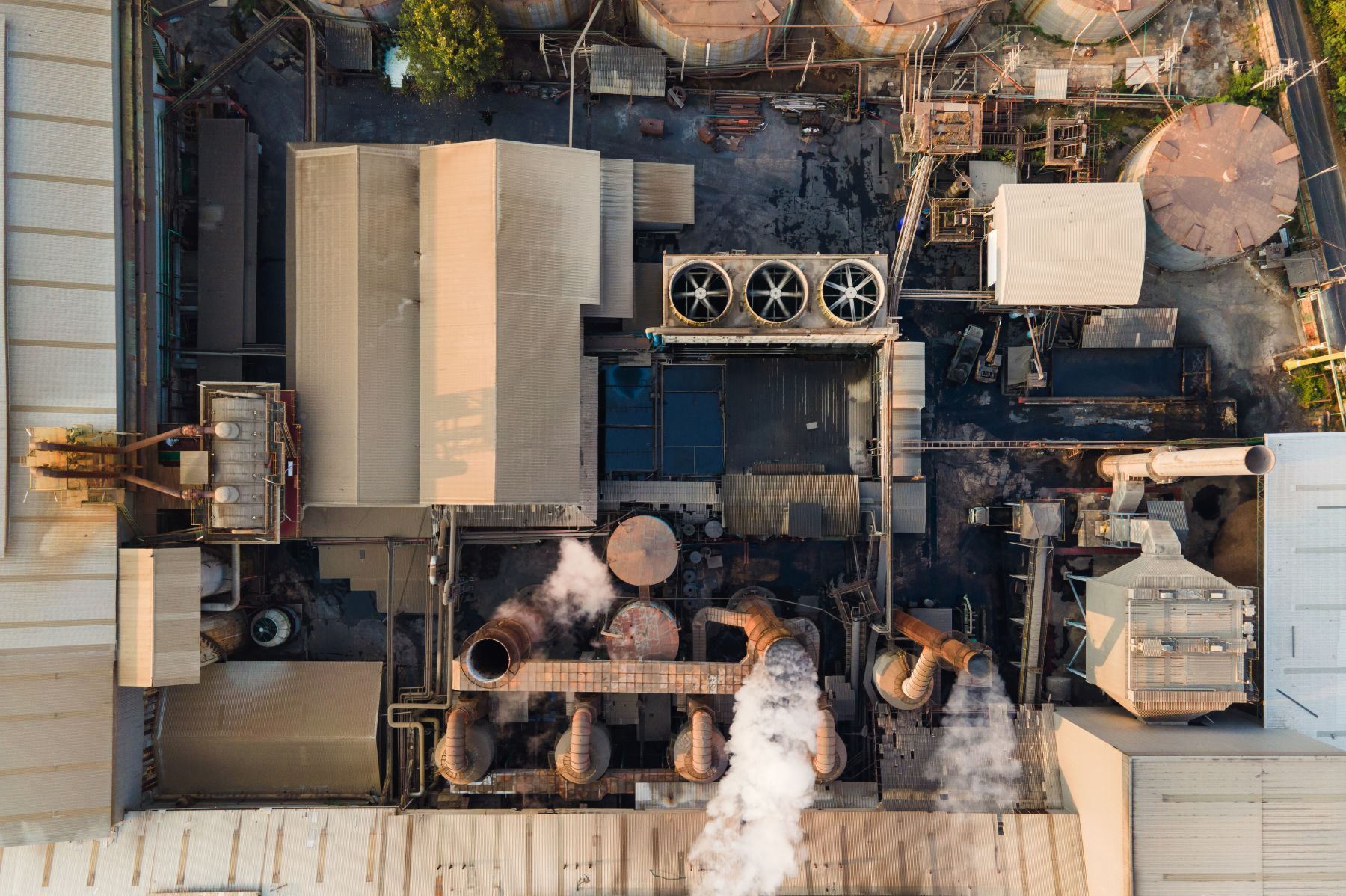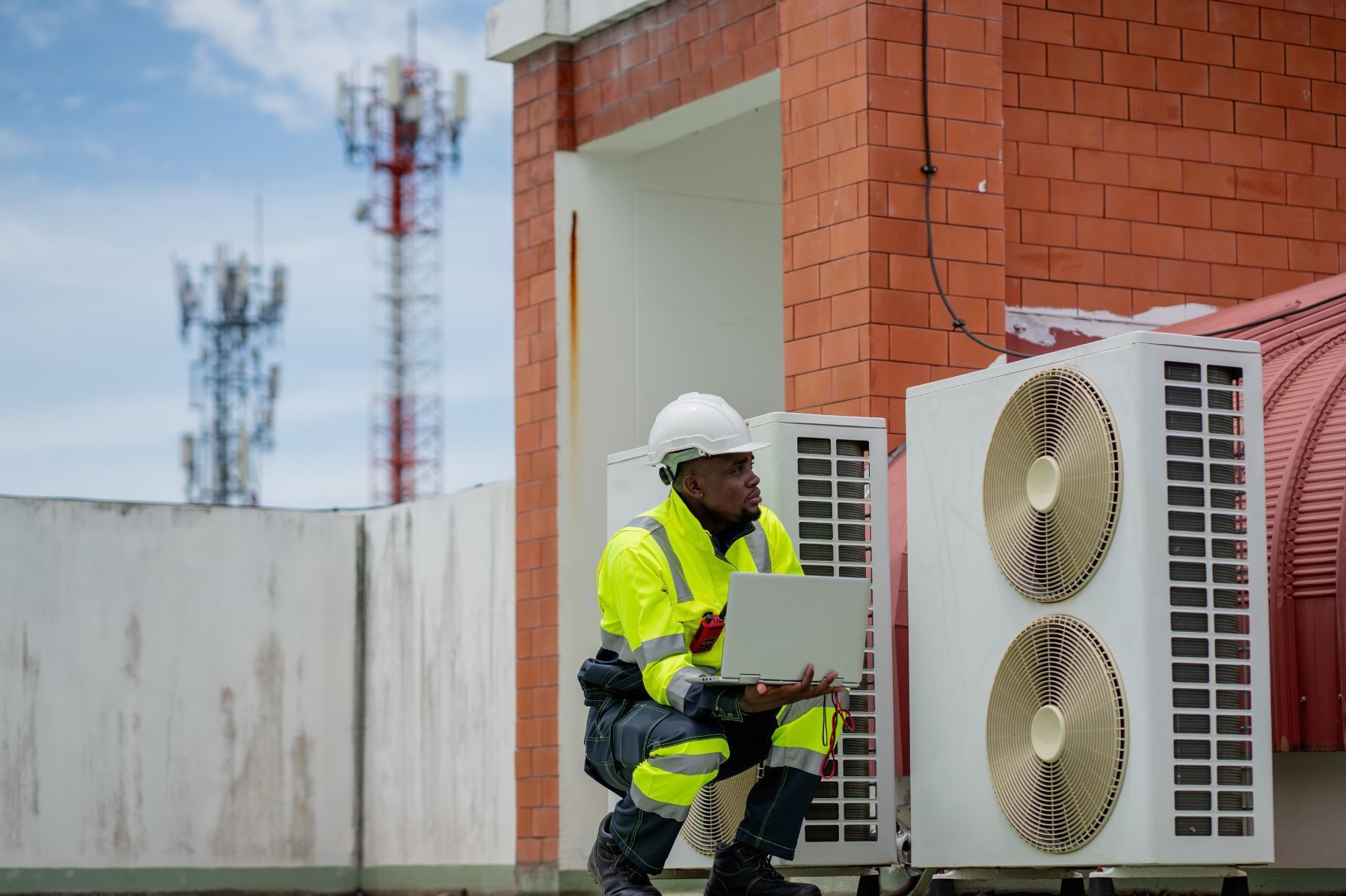Insurance Requirements Every HVAC Contractor Should Know Before Bidding on Jobs
See How We're Different
or call us: (469) 678-8001

Entering the HVAC contracting business means navigating a complex landscape of insurance requirements designed to protect both the contractor and their clients. Before bidding on any job, understanding these insurance obligations is crucial to ensure compliance, manage risks, and maintain a competitive edge. From general liability to workers' compensation and specialty coverages, each type of insurance plays a vital role in safeguarding your business operations.
For HVAC contractors, premiums and coverage needs can vary significantly depending on location, business size, and the scope of work. For instance, general liability insurance premiums typically range from 1.3% to 2.6% of annual revenue, reflecting the importance of this coverage in the industry. This article breaks down the essential insurance requirements every HVAC contractor should know before submitting a bid, helping you avoid costly surprises and build trust with clients.
General Liability Insurance: The Foundation of HVAC Coverage
General liability insurance is the cornerstone of any HVAC contractor’s insurance portfolio. It protects against claims related to bodily injury, property damage, and personal injury that may occur during the course of your work. This coverage is often a mandatory requirement for contractors bidding on jobs, as it assures clients that you can cover potential damages or accidents.
HVAC contractors typically pay premiums ranging from 1.3% to 2.6% of their annual revenue for general liability coverage. This percentage reflects factors such as the size of the business, the scope of projects undertaken, and the contractor’s claims history. For example, a contractor with $500,000 in annual revenue might expect to pay between $6,500 and $13,000 per year for this insurance.
Many states and clients require proof of general liability insurance before awarding contracts. For instance, in Washington, HVAC contractors must register as specialty contractors and provide proof of liability insurance as part of their licensing process. This requirement ensures that contractors have adequate financial backing to cover potential liabilities on the job. More details on these requirements can be found at Mosaicia’s guide to Washington HVAC contractor insurance.
In addition to protecting against accidents and injuries, general liability insurance can also cover legal fees associated with defending against claims. This aspect is crucial, as legal battles can be both time-consuming and financially draining. Without the right coverage, an HVAC contractor could face significant out-of-pocket expenses that could jeopardize their business. Furthermore, having this insurance can enhance a contractor's credibility, as it demonstrates a commitment to professionalism and responsibility in their work practices.
Moreover, general liability insurance is just one part of a comprehensive risk management strategy for HVAC contractors. Many professionals also consider additional coverages such as workers' compensation, which protects employees in case of work-related injuries, and commercial auto insurance for vehicles used in business operations. By investing in a well-rounded insurance portfolio, HVAC contractors can safeguard their business against a wide array of risks, ensuring they can focus on providing quality service to their clients without the constant worry of unforeseen liabilities.
Workers' Compensation: Protecting Your Team and Your Business
Workers' compensation insurance is essential for HVAC contractors employing staff, as it covers medical expenses and lost wages if employees are injured on the job. This coverage not only protects workers but also shields the business from lawsuits related to workplace injuries. In an industry where employees often work with heavy machinery, high temperatures, and potentially hazardous materials, having this insurance is a vital safety net that ensures both the well-being of the workforce and the financial stability of the business.
Costs for workers' compensation vary by state and payroll size. In Alabama, for example, the average rate for HVAC contractors is about $770 per employee annually, which translates to approximately $4,880 per $100,000 of payroll. This rate reflects the industry’s risk profile, considering the physical nature of HVAC work and the potential hazards involved. These figures are detailed on Contractor Nerd’s Alabama HVAC insurance page. Understanding these costs is crucial for HVAC businesses, as they can significantly impact overall operational expenses and budgeting strategies.
Monthly premiums for workers' compensation insurance average around $223 for HVAC contractors, though this can fluctuate based on the number of employees and claims history. Ensuring proper workers' compensation coverage is not only a legal requirement in most states but also a critical factor in maintaining workforce morale and safety. When employees know they are protected, they are more likely to focus on their tasks without the fear of financial repercussions from potential accidents. Furthermore, businesses that prioritize safety and employee well-being often see improved productivity and lower turnover rates, creating a more stable and efficient work environment.
Moreover, many states offer incentives for businesses that implement safety programs and training, which can lead to reduced premiums over time. By investing in comprehensive safety training and proactive risk management strategies, HVAC contractors can create a culture of safety that not only minimizes the likelihood of workplace injuries but also enhances their reputation in the industry. This proactive approach can lead to better client relationships, as customers often prefer to work with companies that demonstrate a commitment to employee welfare and safety standards.
State Licensing and Bonding Requirements
Before bidding on jobs, HVAC contractors must be aware of specific state licensing and bonding requirements, which often include insurance mandates. Licensing ensures that contractors meet minimum standards of competency and financial responsibility, while bonds provide clients with a form of security against incomplete or substandard work.
For example, Washington state requires HVAC contractors to register as specialty contractors with the Department of Labor & Industries. This registration involves securing a $6,000 surety bond and providing proof of liability insurance. The bond acts as a financial guarantee that the contractor will fulfill contractual obligations and comply with state regulations. More information on these requirements can be found at Mosaicia’s Washington HVAC contractor insurance overview.
Understanding and complying with these licensing and bonding requirements is crucial to avoid penalties, delays, or disqualification from bidding on projects. Contractors should check their state’s specific regulations and ensure all documentation is current before submitting bids. Additionally, many states offer resources and training programs designed to help contractors navigate these requirements effectively. Engaging with local trade associations can also provide valuable insights and networking opportunities that can assist in staying informed about changes in legislation or best practices in the industry.
Moreover, the importance of these regulations extends beyond just compliance; they also play a vital role in establishing trust with clients. When contractors can demonstrate that they are properly licensed and bonded, it reassures potential customers that they are working with professionals who adhere to industry standards. This trust can lead to increased business opportunities, as satisfied clients are more likely to recommend services to others. Therefore, investing time and effort into understanding and meeting these requirements is not only a legal obligation but also a strategic business decision that can enhance a contractor's reputation and success in the competitive HVAC market.
Specialized Insurance Coverages for HVAC Contractors
Inland Marine Insurance: Protecting Tools and Equipment
HVAC contractors rely heavily on specialized tools and equipment, which can be costly to replace if stolen or damaged. Inland marine insurance, also known as tools and equipment coverage, offers protection for these valuable assets both on and off the job site.
Annual premiums for inland marine coverage typically range from $500 to $2,000, depending on the value of the tools insured. This coverage is especially important for contractors who frequently transport equipment or work at multiple locations. Without it, losses from theft or accidental damage could severely impact business operations. More insights into inland marine coverage costs are available at Contractor Nerd’s Alabama HVAC insurance guide.
Additionally, many HVAC contractors may not realize that inland marine insurance can also cover rented or borrowed equipment, which is crucial for those who might not own all the tools they need for specific jobs. This can include items like specialized diagnostic tools or large machinery that are essential for certain installations or repairs. By having this coverage, contractors can avoid significant out-of-pocket expenses that could arise from equipment loss or damage while working on a project. Furthermore, some policies may even cover equipment while in transit, offering an added layer of security during transportation between job sites.
Professional Liability Insurance: Guarding Against Errors and Omissions
While general liability insurance covers physical damages and injuries, professional liability insurance—also known as errors and omissions coverage—protects HVAC contractors against claims of negligence or subpar work performance. This is particularly relevant when design errors, such as incorrect airflow calculations, lead to client dissatisfaction or additional repair costs.
Having professional liability coverage can be a deciding factor for clients seeking contractors who stand behind their work and are prepared to address potential mistakes. This insurance helps cover legal fees and settlements related to such claims, providing peace of mind and financial stability. More details on this coverage can be found through Mosaicia’s specialized business insurance resources.
Moreover, the importance of professional liability insurance extends beyond just financial protection; it also enhances a contractor's reputation in a competitive market. Clients are more likely to choose HVAC contractors who can demonstrate a commitment to quality and accountability, knowing they have the backing of a solid insurance policy. This coverage can also foster stronger client relationships, as contractors are better equipped to handle disputes and rectify any issues that may arise, ultimately leading to increased customer satisfaction and repeat business. In an industry where word-of-mouth referrals are vital, having professional liability insurance can be a significant advantage in building trust and credibility with potential clients.
Additional Insurance Policies to Consider
Umbrella Liability Policies: Extra Protection Beyond Limits
Umbrella liability policies provide additional coverage beyond the limits of general liability, auto, and employers' liability insurance. For small HVAC businesses, a $1 million umbrella policy can offer significant financial protection against large claims or lawsuits that exceed primary policy limits.
In Washington, for example, the annual cost of a $1 million umbrella policy starts around $850, making it a cost-effective way to enhance coverage. This policy can be crucial in protecting the business’s assets and ensuring long-term viability in the face of unexpected legal challenges. More information on umbrella policies is available at Mosaicia’s umbrella insurance overview.
Moreover, umbrella policies can cover various scenarios that might not be included in standard insurance policies, such as libel, slander, or false arrest claims. This added layer of protection can be especially valuable in today’s litigious society, where even minor incidents can escalate into costly legal battles. By investing in an umbrella policy, HVAC contractors can focus on their core business operations with peace of mind, knowing they have a safety net in place for unforeseen circumstances.
Commercial Auto Insurance: Covering Business Vehicles
Many HVAC contractors use vehicles to transport tools, equipment, and personnel to job sites. Commercial auto insurance is essential to cover damages and liabilities associated with these vehicles, including accidents, theft, and property damage.
This insurance differs from personal auto policies by providing coverage tailored to business use, ensuring that contractors are protected during work-related travel. Without commercial auto insurance, contractors risk significant financial exposure in the event of vehicle-related incidents. Detailed information on commercial auto insurance requirements can be found at Mosaicia’s guide to commercial auto insurance.
Additionally, commercial auto insurance can include coverage for specialized equipment that may be stored in vehicles, such as HVAC tools and machinery. This is particularly important for contractors who rely on expensive equipment to perform their jobs efficiently. In the event of theft or damage, having this coverage can significantly reduce the financial burden on the business. Furthermore, many policies offer options for rental reimbursement, which can help contractors maintain operations while their vehicles are being repaired after an accident. This ensures that HVAC businesses can continue to serve their clients without interruption, preserving their reputation and customer relationships.
Budgeting for Insurance: What to Expect
Understanding the costs associated with various insurance policies helps HVAC contractors budget effectively and avoid surprises. On average, contractors can expect to pay about $78 per month for general liability insurance, $124 per month for a business owner's policy, and $223 per month for workers' compensation insurance. These averages serve as a useful benchmark but can vary widely depending on business specifics. Factors such as the size of the business, the number of employees, the types of services offered, and the geographical location can all influence these rates significantly. For instance, contractors operating in high-risk areas or those who handle more hazardous materials may find their premiums to be considerably higher.
By factoring these costs into bids, contractors can ensure that pricing is both competitive and reflective of the true cost of doing business safely and legally. Investing in comprehensive insurance coverage is not just a regulatory necessity but a strategic move to protect your business’s future. Moreover, understanding the nuances of each policy type can lead to more informed decisions. For example, while general liability insurance covers third-party claims for bodily injury and property damage, it may not cover specific risks associated with HVAC work, such as equipment failure or installation errors. Therefore, contractors should also consider additional coverage options like professional liability insurance or equipment breakdown insurance to safeguard against potential financial losses. This proactive approach not only enhances the contractor's credibility but also builds trust with clients, who are increasingly aware of the importance of working with insured professionals.
Conclusion: Preparing to Bid with Confidence
Before bidding on HVAC jobs, contractors must carefully assess their insurance needs and ensure compliance with all relevant requirements. From general liability and workers' compensation to specialized coverages like inland marine and professional liability insurance, each policy plays a critical role in risk management.
Staying informed about state-specific licensing and bonding requirements, such as those in Washington, and budgeting for insurance premiums will position contractors to submit competitive bids with confidence. Ultimately, comprehensive insurance coverage protects your business, employees, and clients—making it an indispensable part of any successful HVAC contracting operation.











